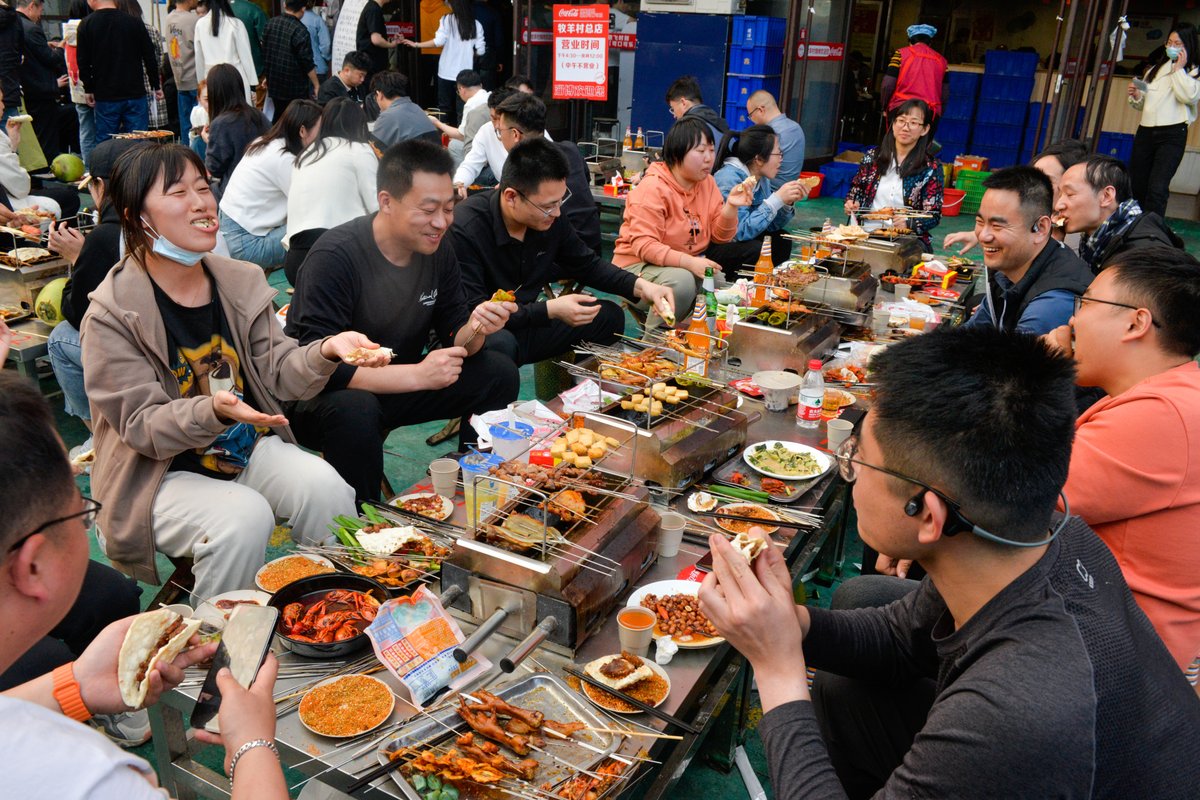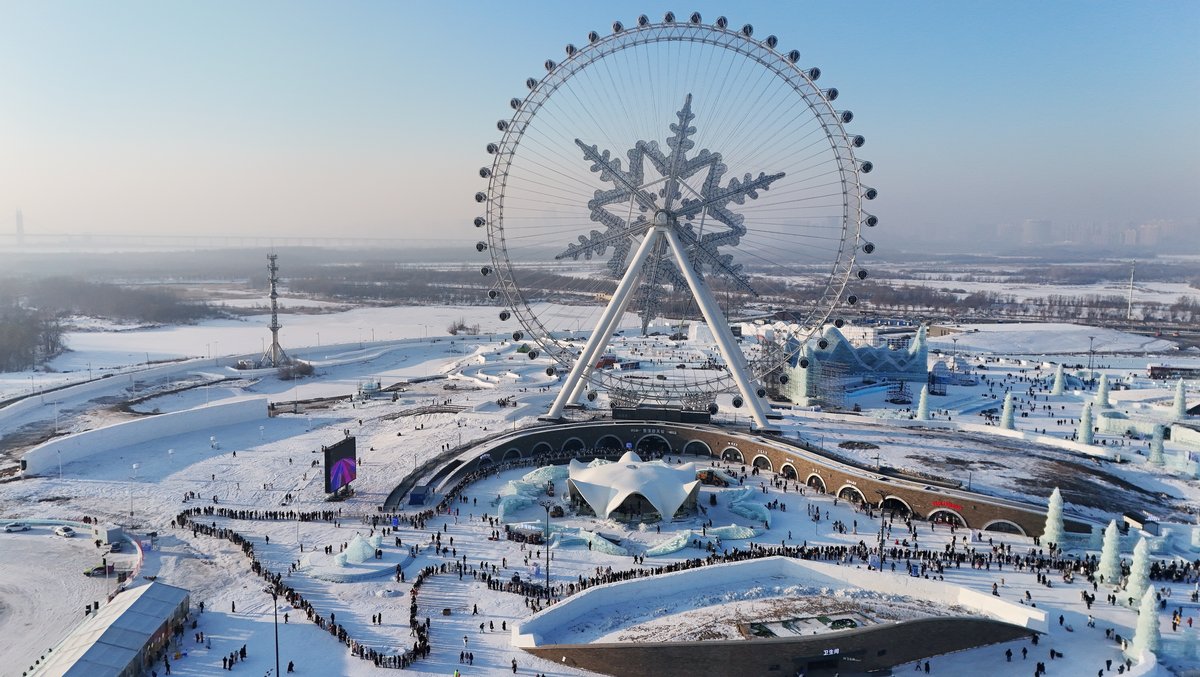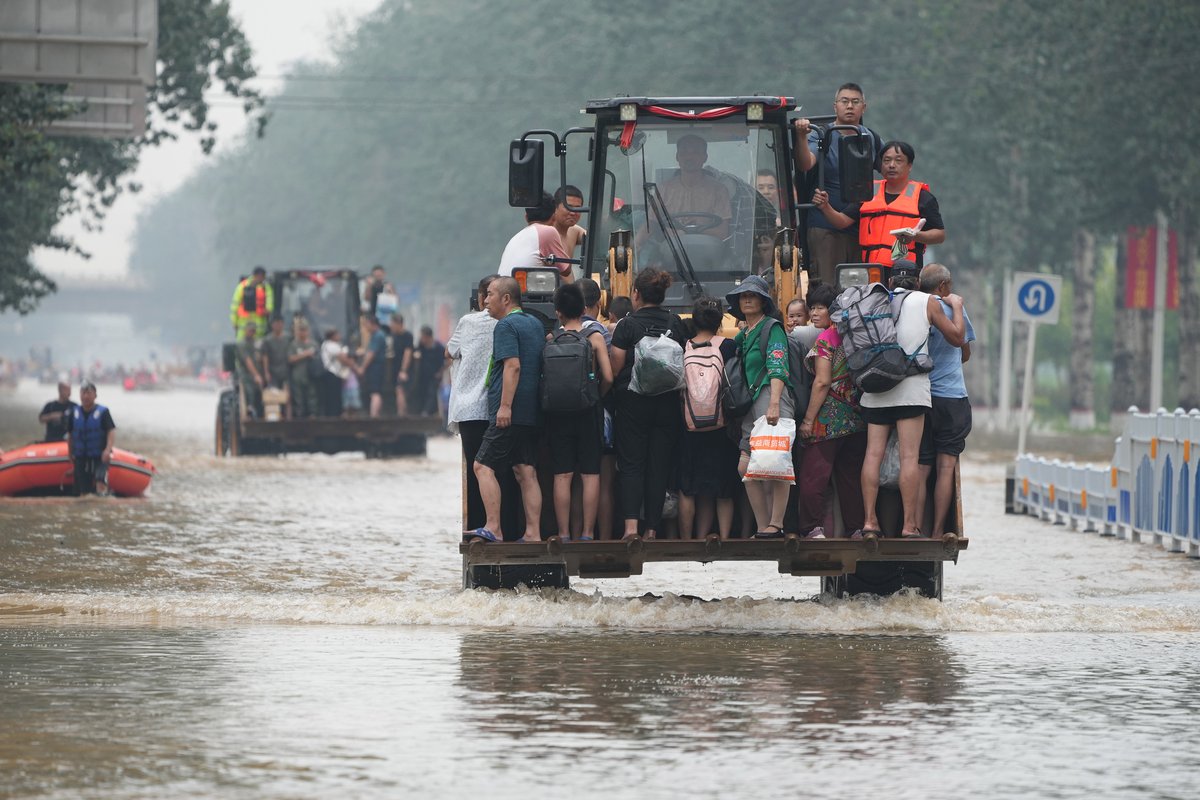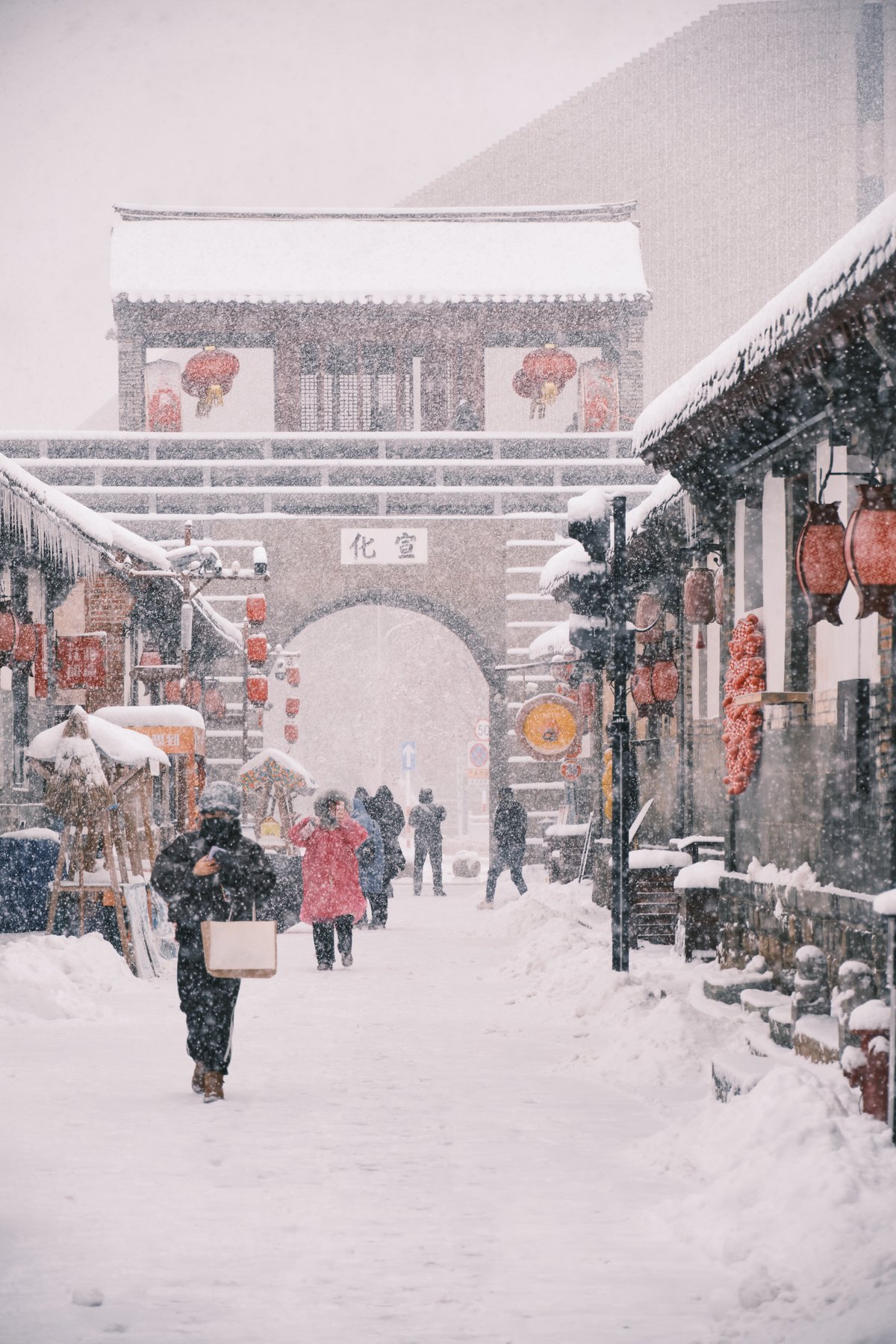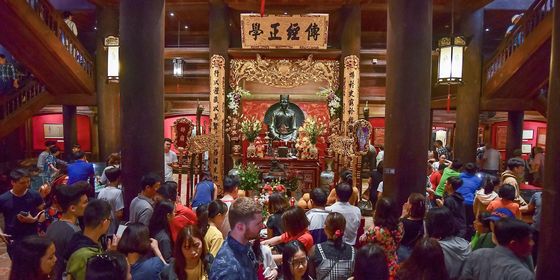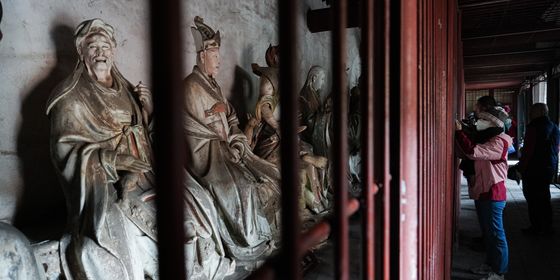The year’s biggest news stories captured on camera
Record snowfalls, booming domestic tourism, torrential rains, millions of civil service exam takers...China’s 2023 has been a record-breaking year.
The flood of news also made for some spectacular photos. Here are the photos that captured the major happenings in China last year:
Viral attractions
Zibo, a little-known city before 2023, recorded 4.8 million visitors last March alone. The city, in Shandong province, went viral for its signature barbecue and supposedly laid-back atmosphere. Photos of the epic swathes of diners sitting in the streets eating roasted meat and enjoying live music flooded the internet. Whether Zibo can sustain these unprecedented levels of tourism in 2024 remains to be seen.
Likewise, Tianjin, a city previously known for its cross-talk comedy and street snack jianbing, also drew crowds. This summer, many people visited not for food or comedy shows, but to watch elderly people dive into the city’s Haihe River. For years many locals, mostly male retirees, would jump from Shizilin Bridge as part of their daily exercise regime. In 2023, netizens got wind of the past time and documented it online. Many young tourists, who called themselves shechu (“corporate livestock”), admired the retirees, especially for their courage and attitude toward life
In November Heilongjiang, a province in China’s northeastern region famous for its picturesque snow scenes, welcomed over 27 million visitors, nearly triple the number from last year. Online, many tourists compared trips to the region to high-end European tours with the phrase: “It’s not that we can’t afford to go to Europe, it’s that a trip to Harbin (capital of Heilongjiang) is more cost-effective.”
Harbin Ice and Snow World—an ice carving-themed amusement park established in 1999 and spanning 200,000 square meters—welcomed over 40,000 visitors on its opening day in December 2023, despite temperatures dropping below minus 20 degrees Celsius. However, the venue was not prepared for the huge influx of tourists, resulting in long queues and an overcrowded park. The park later issued an apology for its poor management and issued refunds to some customers.
Drama on sports fields
China’s village-level sports championships exploded in popularity this year. Affectionately known as 村BA (village basketball championships) and 村超 (Village Super League), these tournaments attracted tourists from all over the country with their intense, yet friendly games.
Players range in age from 15 to 50, all hailing from nearby villages with day jobs as butchers, firefighters, engineers, and more.
Still, no village soccer player is as popular as Lionel Messi in China. The Argentina star played in Beijing’s Workers’ Stadium on June 15 in an exhibition match against Australia. During the match, an 18-year-old fan evaded security guards, ran onto the pitch, and hugged Messi, before being carried away by marshalls. The young man was later detained by police. While some criticized the man for disrupting the game, many others admired him for daring to do something they wouldn’t.
A relatively new sport also captured attention in 2023. For the first time, e-sports were included in the 19th Asian Games, held in Hangzhou, Zhejiang province, from September 23 to October 8.
China’s team won the first e-sport medal in the Games’ history by defeating their Malaysian counterparts 2:0 in the final of Area of Valor.
Disasters and wonders
In late July, severe flooding hit northeastern China, including the Beijing and Tianjin municipalities, and Hebei and Jilin provinces. Zhuozhou, Hebei province, was one of the hardest-hit areas. Flooding there caused damage equivalent to 10 billion yuan in the publishing industry alone, as the city (around 70 kilometers away from Beijing) hosts the warehouses of many publishers.
Another big news story in China this year was the release of wastewater from the Fukushima nuclear power plant into the ocean in August. The release caused anger and panic in China, with state media heavily criticizing the move by Japan and consumers, concerned about food safety, becoming hesitant to dine at Japanese restaurants or purchase seafood potentially affected by contaminated water.
Extreme temperatures, likely influenced by climate change, also made for some spectacular photos in 2023. After an abnormally warm autumn, with temperatures in Linqu county of Shandong province reaching over 32 degrees Celsius in early November, the subsequent waves of cold and snowfall took residents of northern China by surprise. In Weihai, a coastal city in Shandong, more than 70 centimeters of snow fell in just a few days.
Southern China also experienced the cold snap. Many parts of Guangdong province, whose annual average temperature is about 21 degrees Celsius, reported snowy days in mid-December. The last time it snowed in Guangdong was in 2016 after a super cold front dubbed the “cold wave of the century.”







